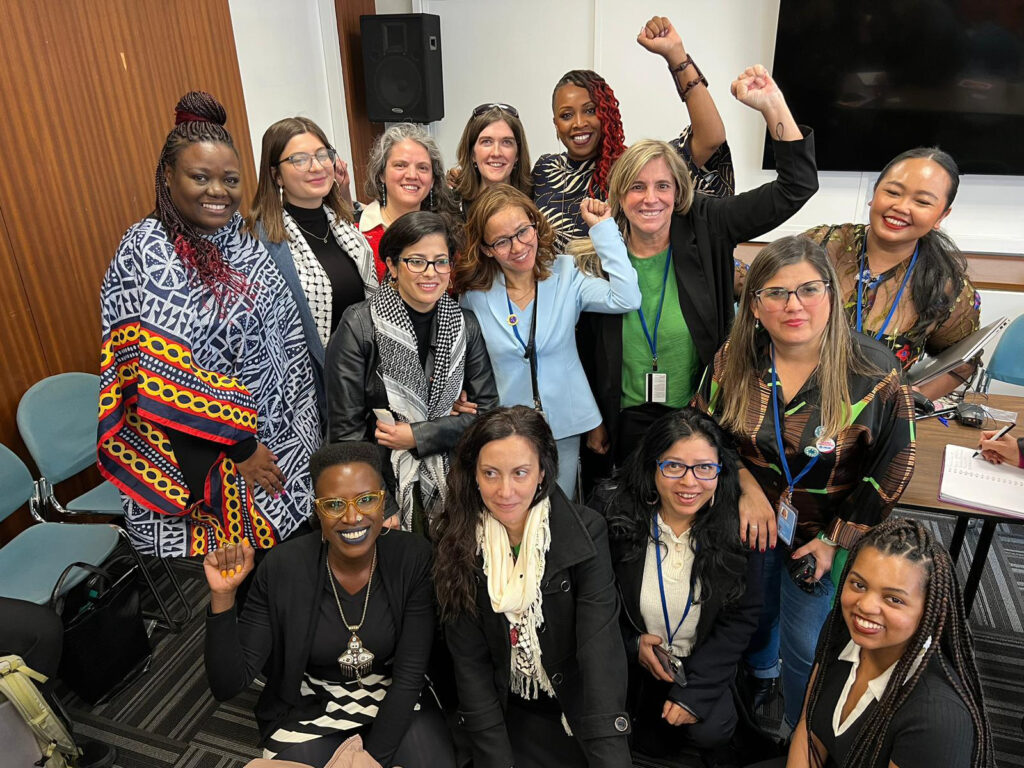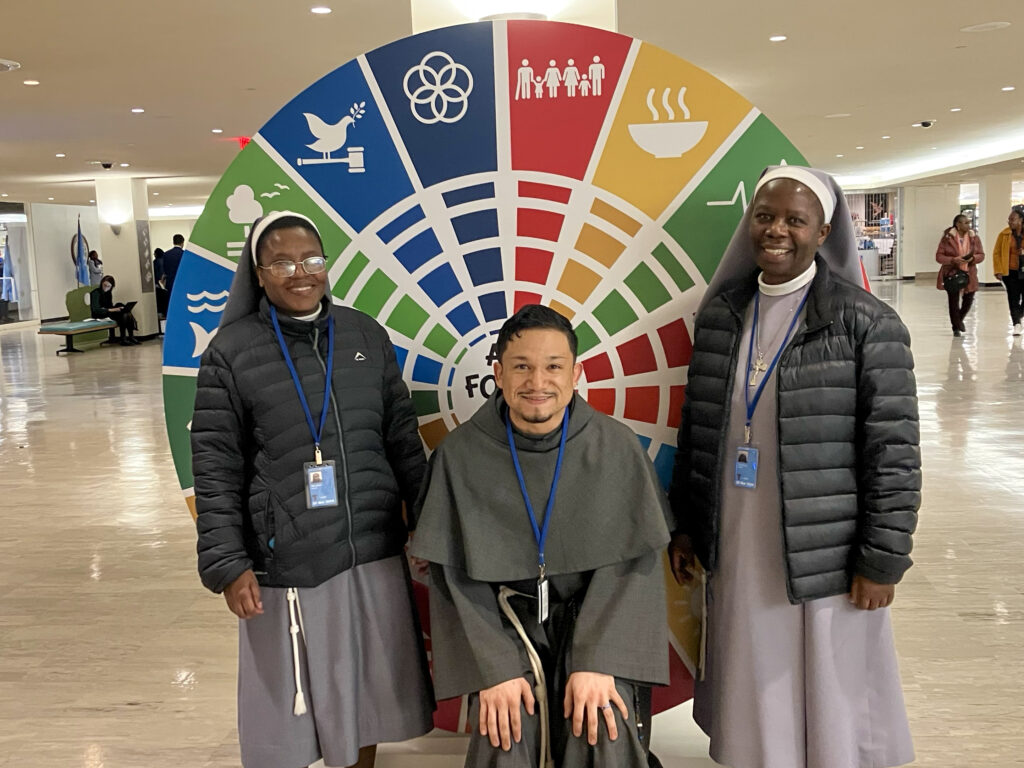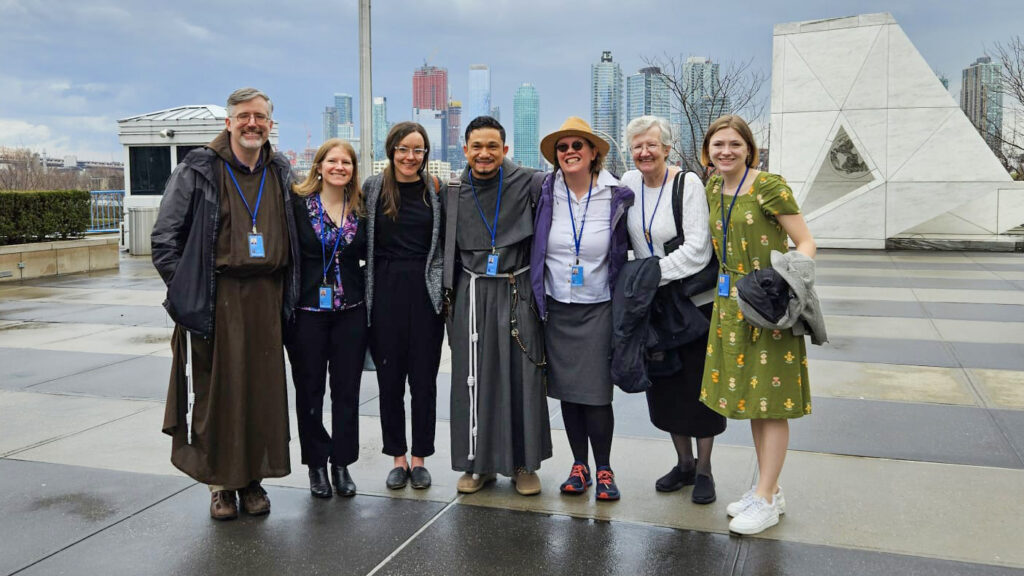In March, New York saw the largest annual United Nations meeting on gender equality and women’s empowerment as the Commission on the Status of Women (CSW) convened for its 68th session. Franciscans International seized this opportunity to continue its advocacy work related to extreme poverty, including as a result of the disproportionate risk of human rights violations women face at the hands of transnational businesses.
This year, we also welcomed a group of nine Franciscan women, active on a broad number of human rights issues ranging from social work and migration to academics, to attend the session, share their insights, and take inspiration for their work.
The 68th session centered on the need to accelerate the empowerment of women and girls by addressing poverty and strengthening institutions and financing. Although UN Member States have committed to reaching gender equality by 2030, there is an annual spending deficit of $360 billion to realize this goal. This goes to the heart of a fundamental problem: when women are left behind, all of us are held back.



“We keep telling girls to ‘shoot for the moon because you’ll end up between the stars.’ But we can barely get to the moon,” says Gabriella Martinez of the Franciscan Action Network, who was part of the FI delegation. “At the session, I heard that peace is 20 percent more likely to last if women are involved in dialogues. That may not seem like a big difference, but when we have all these disputes around the world, it is. And I heard women are saying, ‘We have the solutions; we just don’t have the resources.’”
“Shock absorbers”
A primary area of concern for FI continues to be the role of businesses in fueling human rights violations and environmental degradation, which often disproportionately affects women and girls. Although many companies pay lip service to gender equality, women face systematic violations around the world, including financial and sexual exploitation.
On the margins of the session, FI supported an event organized by the Feminists for a Binding Treaty, where speakers were able to share cases from Argentina, Indonesia, Kenya, and the Occupied Palestinian Territory. The discussion also explored ways to strengthen the linkages between the CSW in New York and the ongoing negotiations at the UN in Geneva on a new treaty that would regulate the activities of transnational corporations under international human rights law.
“If Saint Francis was living today, he would be at the Commission on the Status of Women.”
Sister Maryann A. Mueller CSSF
Echoing some of the themes discussed during this event and following two intense weeks, the outcome document of the session recognizes that women and girls living in poverty have become ‘shock absorbers’ in times of crisis. Acknowledging the shortcomings of the international financial architecture, the Commission also recommended that UN Member States implement reforms that include progressive taxation, enforcing core labor standards, and new strategies toward sustainable economies.
These Agreed Conclusions, together with language coming from other UN human rights mechanisms and State commitments under international law, will continue to inform and shape FI’s work to empower those working on gender equality at the grassroots and the UN.

